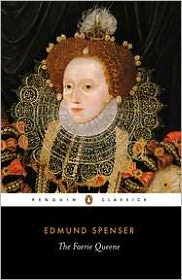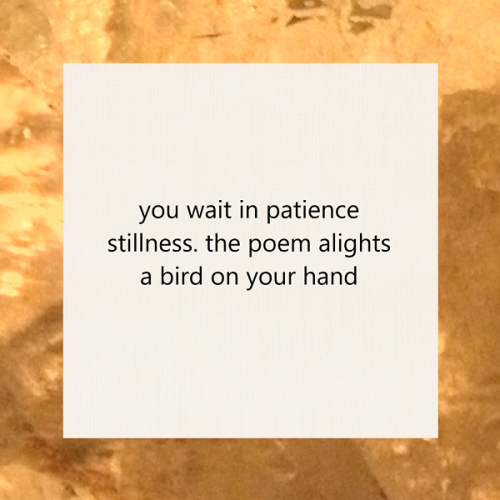The purpose of this post isn’t – of course – to convince you these books are bad. Most of them actually aren’t. They just aren’t a good fit for my taste and convictions. Only one book is frankly bad (that would be the Hemingway — sorry Ernest). And the Roth novel is an absolute must-read. Here goes.
 Spenser: The Faerie Queene. An allegorical, epic poem written to compliment Queen Elizabeth the First of England and flatter the aristocracy for their fine taste in the appreciation of “Capital A” art. Spenser’s great technical skill as a poet cannot save a work in which scarcely a single line of genuine inspiration or human feeling can be found.
Spenser: The Faerie Queene. An allegorical, epic poem written to compliment Queen Elizabeth the First of England and flatter the aristocracy for their fine taste in the appreciation of “Capital A” art. Spenser’s great technical skill as a poet cannot save a work in which scarcely a single line of genuine inspiration or human feeling can be found.
Hemingway: The Green Hills of Africa. In this non-fiction account of a month on safari, Hemingway turns himself into a bad imitation of one of his own characters, and his prose follows suit. Painfully mannered and false from beginning to end.
Shakespeare: The Merry Wives of Windsor. The Bard dropped quite a few stinkers on the Elizabethan stage, and it can be hard to pick out the worst. I polled my group of advisors and Wives got the most votes. Coriolanus also made a strong showing, as did Titus Andronicus. (Pericles wasn’t on the ballot because the authorship is disputed.) None of these plays is really so bad that it deserves to be on a most-awful list. It’s their having fallen so far short of their father’s genius children that makes them infamous.
Joyce: Finnegan’s Wake. I may burn in hell for this one, and Finnegan’s Wake may actually be one of the best books every written, but it is just too much damn work. Finnegan’s Wake is like one of those monasteries at the top of a mountain, where after decades of constant study, hard work, self-denial, meditation, and no sex at all, you achieve total consciousness. Total consciousness sounds great, but I have kids to take to the park, and my wife is expecting me to cook dinner tonight, and I just don’t have the time. And, let’s be honest, I’m not smart enough to read this book, either.
Dante: Paradiso. Okay, I’m definitely going to burn in hell for this one, but that’s the problem. Hell is more fun. Inferno was a rockin’ good time. Purgatorio was pretty good, better in the beginning, then it got slow. But there’s simply no fun in heaven. What there is, instead, is Thomas Aquinas nattering on about Francis of Assisi and Peter Damian (I don’t even know who that is) chatting up Dante about predestination. And if you don’t read Italian, and I don’t, then you have to deal with the English translations, which do to Dante’s poetry what a cheap plastic transistor radio – that kind you could buy in 1973, with the little black wrist strap – does to Beethoven’s 9th symphony.
Stendhal: The Charterhouse of Parma. A thoroughly mediocre novel that engages the reader’s imagination on exactly one point: Why is this book considered a classic?
 Lewis: Babbitt. A satire is supposed to make the targets of its ridicule look ridiculous, but Lewis’ satire is furious and implacable and, finally, a cheat. Lewis portrays George Babbitt as so vulgar and foolish that it’s impossible not to feel superior to him, which is the cheapest flattery a writer can offer a reader.
Lewis: Babbitt. A satire is supposed to make the targets of its ridicule look ridiculous, but Lewis’ satire is furious and implacable and, finally, a cheat. Lewis portrays George Babbitt as so vulgar and foolish that it’s impossible not to feel superior to him, which is the cheapest flattery a writer can offer a reader.
Roth: The Breast. Roth’s parody of Kafka’s Metamorphosis tells the story of a man who wakes up one day to discover that he’s turned into a giant breast. I’m not making this up! Perhaps no major writer has set out to intentionally write a bad book and succeeded so spectacularly. Transcendentally, fabulously awful!

http://www.nybooks.com/articles/archives/2012/jul/12/what-make-finnegans-wake/?pagination=false I just read this article yesterday about Finnegan’s Wake. Strange coincidence!
Funny. I hadn’t looked at the author before I began reading; thought to myself, sounds a little like Chabon; and there was his name at the top when I was done.
This may be just me … in fact, it probably is just me … but I always think all novels deal with the limits of what language can say and what the mind can know, and that they are just sitting there waiting for us to notice. All you have to do is look at a single word (“love” for instance) and keep looking for a little while, and then down the rabbit hole you go. Quicker than the Wake.
I absolutely agree with MC about Ulysses. It’s not that hard to read with a few timely hints and facts that are easy to miss, or at least I found easy to miss. Knowing Bloom is Jewish in Catholic Dublin, for example.
I’m glad Michael got through it and got something out of it. I might try again in another decade.
I took a seminar class on Finnegans Wake and we got through three pages over the course of 16 weeks.
Ha! I like your exaggerations as much as mine. I stuck to a little basic research, I remember Edmund Wilson’s essays, and who else has slipped my mind, plus some casual sampling at my local library. I really did conclude it was too much work. The decisive element for me was the phonetic transcriptions. I have a poor ear for spoken language and I don’t easily pick up the pronunciation of a word from its spelling. No way was I going to be able to decode the thing.
I wish it was an exaggeration. We had Finnegans Wake and a book of annotations that was longer than Joyce’s novel, plus several scholarly articles to read to get through those meager pages. I love Joyce, but that was pure torture.
Last spring, I saw a performance of Titus Andronicus. It was truly great theater. (Even the stage hand that had to come in between acts to wipe the blood up from the stage was fun.) Puppetry, inventive staging, and an incredible story truly made it great theater. Never thought I disagree on this one, but I must.
I saw the Taymor Titus and liked it as well as I can like something that seems to be pointlessly and horribly disturbing. (I have something of the same problem with Iago’s motivation.). The Fiennes Coriolanus is likely to change my mind, too, if I ever catch up with it. The question of which Shakeseare is worst is largely a parlor game, and points out that even bad Will is still pretty good. Thanks for stopping by.
Coriolanus is actually one of my favourite Shakespeare plays. Comedy of Errors and Love’s Labour Lost – there you have the real stinkers 🙂
I saw the Fiennes movie recently, and I think you’re right.
I could not agree more about The Faerie Queen. Tedious and uninspired. Finnegan’s Wake is pure nonsense–the naked emperor of the literary world. I’m a devoted fan of Sinclair Lewis, though admittedly Babbitt is not his best (Main Street and Elmer Gantry are). I’m reading his Free Air right now; it’s quite good. Have you read it?
I haven’t read Main Street and might try it. I saw a bit of the movie version of Elmer Gantry and it felt Babbitt ish to me. I guess I’d say that I think satire is more effective when it is not so blunt and obvious, that is … if you might mistake it for the truth for a moment.
I’ve never seen the movie, actually. The book can be a bit heavy handed, but it was still bold in its time for painting a minister in such a manner. I try to fit novels into their historical contexts. It’s a great read!
I’ll see how cheap it is as an ebook. “Heavy handed” is never a good recommendation for me. I like authors who slip their slender blades up under my rib cage and stab me before I realize it. Which, thinking about it, does not sound like much of an endorsement of reading.